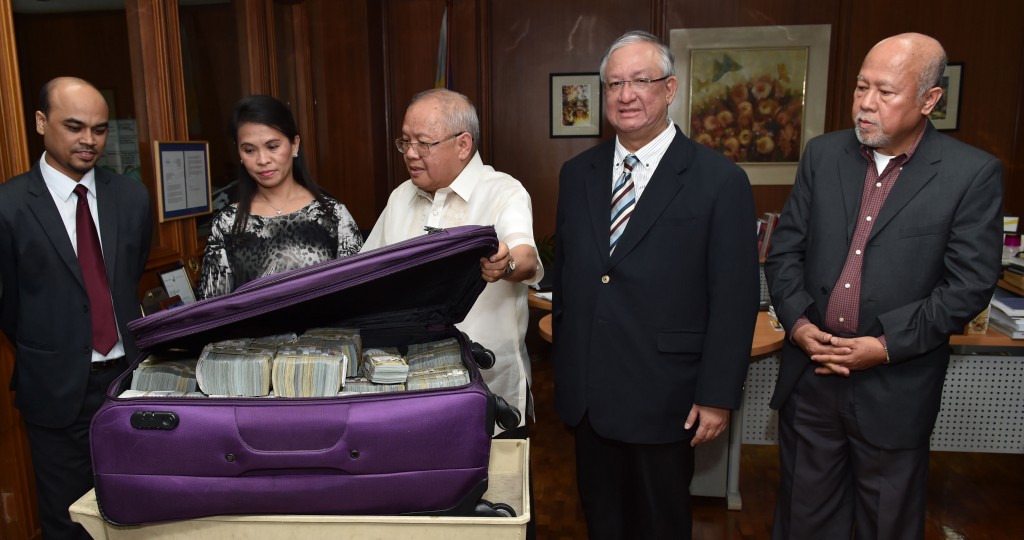
MANILA, Philippines (AFP) — More than $4.5 million of tens of millions recently stolen from Bangladesh and funneled into Philippine casinos was recovered Thursday, as a lawmaker in Manila said almost half the haul could still be salvaged.
On February 5, unidentified hackers shifted $81 million from the Bangladesh central bank’s account with the US Federal Reserve to a nondescript bank in Manila, and then to the casinos where the trail went cold.
Representatives for casino agent Kim Wong, who is under criminal investigation after a portion of the stolen money was traced to his account, surrendered $4.63 million in cash to the Philippine central bank on Thursday.
“He kept his promise to return the money,” Wong’s lawyer Innocencio Ferrer said in a statement.
Wong testified at a marathon parliament hearing Tuesday that two high-rollers from Beijing and Macau shifted the $81 million to dollar accounts in Manila’s Rizal Commercial Banking Corp (RCBC).
Wong said he did not know the money was stolen from Bangladesh and that he merely helped the two men — who are also his casino clients — open bank accounts.
He offered to return the money, which he said remained in his account in Solaire, one of the Philippine capital’s gleaming billion-dollar casinos.
Earlier Thursday, Filipino Senator Ralph Recto said as much as $34 million — almost half of the sum stolen — could be recovered from two casinos and a foreign exchange brokerage based on testimonies from the hearing.
By Recto’s own calculations, this would include $17 million that Wong claimed was still with exchange brokerage Philrem and $10 million from a destitute casino in the north.
There was also $5.5 million that Wong picked up from the house of Philrem’s owner and a further $2.3 million in the Solaire casino account of the Macau man who allegedly brought the $81 million to the Philippines.
“Our law enforcement agencies must act swiftly to recover any portion of the loot that is still within Philippine soil,” Recto said in a statement.
“It is very important to recover as much of the money and return it to Bangladesh. The money was stolen from a poor country,” he added.
The brazen heist highlighted how the Philippine’s banking loopholes and anti-money laundering laws have made the impoverished and corruption-weary Southeast Asian nation a dirty money destination.
Philippine law exempts casino transactions from scrutiny by the country’s anti-money laundering council without a case filed in court.
The senate is scheduled to resume its investigation next week.
© 1994-2016 Agence France-Presse







